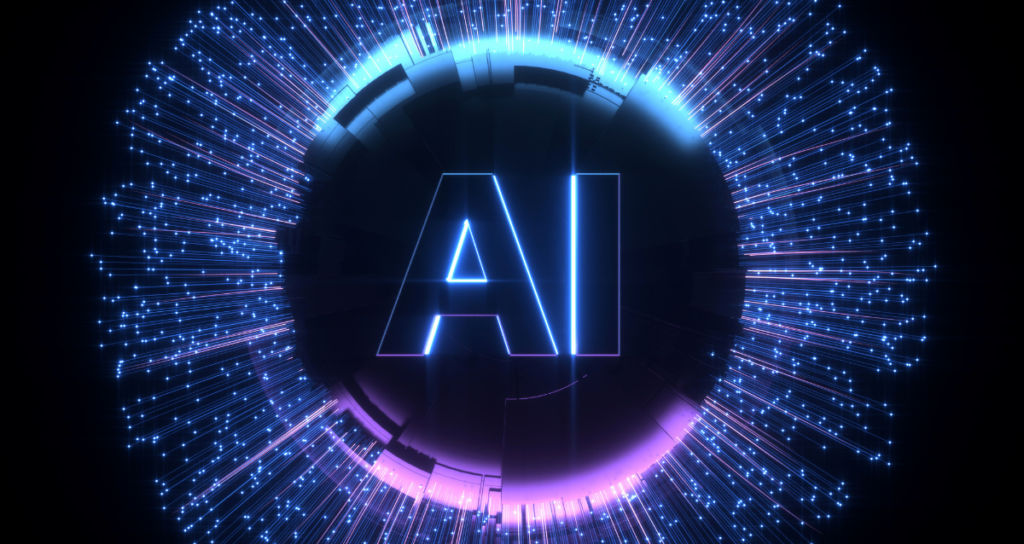In just a few months, ChatGPT has emerged as a powerful ally, revolutionising the way marketers craft content and engage with their audiences. However, as we delve deeper into the realm of AI-generated content, we encounter a set of challenges that, if left unaddressed, can hinder its full potential. In collaboration with leading Australian marketers, we’ve identified five critical issues that marketers face with ChatGPT. In this comprehensive exploration, we will dissect these challenges and offer practical insights into how to overcome them.
Table of Contents

The 5 problems of ChatGPT
Repetitive Sentence Structure
Opinion: One of the most noticeable issues with ChatGPT-generated content is its tendency to produce sentences that follow a repetitive and monotonous structure. This can make the content sound mechanical and unnatural, particularly in casual settings like social media posts.
Suggestion: To tackle this problem, consider reading the AI-generated content aloud, paying particular attention to stop words. Identifying and rewriting clunky sentences can significantly enhance the readability and engagement of your content.
Limited Word Variations
Opinion: ChatGPT exhibits a penchant for using certain keywords repetitively when generating content on specific topics. This lack of word variation can diminish the appeal and effectiveness of advertising copies, rendering them less engaging to the audience.
Suggestion: To address this limitation, focus on reducing the repetitive use of specific words or phrases within your content. For example, if you mention a brand like “Chanel” initially, consider using “the French brand” for subsequent mentions to introduce variety and maintain reader interest.
Missing Brand Voice
Opinion: Brands often invest significant effort in defining their unique voice—a crucial aspect of their identity. However, ChatGPT frequently falls short in capturing and replicating this distinctive essence when generating content.
Suggestion: While ChatGPT can serve as a valuable draft generator, it is essential to review and fine-tune the content to align it with your brand’s voice. Customization is key to ensuring that your content remains consistent with your brand’s identity and resonates with your target audience.
Intellectual Property Issue
Opinion: Every prompt entered into ChatGPT contributes to its continuous learning and improvement. While this is advantageous for its development, it raises concerns regarding intellectual property. Some companies, especially those with stringent IP guidelines, may be hesitant to use ChatGPT due to this potential risk.
Suggestion: Intellectual property leaks are a significant concern and should not be taken lightly. If your organisation prioritises IP protection, consider refraining from using ChatGPT for generating content to prevent any inadvertent exposure of proprietary information.
Information Inaccuracy Liabilities
Opinion: ChatGPT-generated content may sometimes quote inaccurate sources or present information in an incorrect manner. However, companies bear ethical responsibility for ensuring the accuracy of the content shared on their websites or platforms.
Suggestion: Before publishing any content generated by ChatGPT, it is imperative to conduct thorough fact-checking and review. While AI can be a powerful tool, it is not infallible, and human oversight remains essential in ensuring the correctness and credibility of the information presented.

The Future of ChatGPT: Anticipating Evolutions and Enhancements
As ChatGPT continues to make significant strides in the world of digital marketing, it’s essential to peer into the future and envision the developments and improvements that lie ahead. While OpenAI’s CEO has indicated that the company is not presently engaged in training GPT-5, this does not imply stagnation. OpenAI remains committed to refining and optimising the capabilities of ChatGPT, with future updates poised to address key shortcomings and challenges that have surfaced during its usage in various industries, including digital marketing.
Here, we will delve into the potential future enhancements and evolutions of ChatGPT:
Information Accuracy
One of the most crucial areas for improvement in AI-generated content is enhancing the accuracy of information. ChatGPT has been known to occasionally quote inaccurate sources or convey information in a misleading manner. Future iterations are expected to implement more robust fact-checking mechanisms and verify the sources of data to minimise the dissemination of incorrect information. Marketers can then rely on ChatGPT not only for content generation but also for factual accuracy, which is paramount in maintaining trust with their audiences.
Advanced Language Variations
While ChatGPT is already proficient in multiple languages, it may evolve to offer more nuanced and context-aware language variations. This would enable marketers to create content that resonates even more deeply with diverse global audiences. Improved language capabilities can help in crafting culturally sensitive and region-specific marketing campaigns, further expanding the tool’s utility in international markets.
Customizable Brand Voices
Addressing the challenge of missing brand voice, future iterations of ChatGPT may introduce advanced customization options. Marketers could define their brand’s distinct voice and style parameters within the AI, allowing it to generate content that aligns seamlessly with their brand’s identity. This would empower companies to maintain a consistent and recognizable voice across all their marketing materials.
Legal and Intellectual Property Safeguards
To allay concerns regarding intellectual property issues, ChatGPT’s future iterations may come equipped with robust safeguards and permissions. Users might have the ability to restrict specific data or content from being used for further training, ensuring that sensitive proprietary information remains secure. This would be particularly beneficial for companies with stringent intellectual property guidelines.
Enhanced Creativity and Innovation
While ChatGPT is already a potent tool for content generation, future versions may exhibit heightened creativity and innovation. This could involve more advanced brainstorming capabilities, allowing marketers to access a broader spectrum of ideas and concepts. Additionally, AI-driven content ideation may become more integrated with the creative process, yielding novel and compelling marketing strategies.
Seamless Integration with Marketing Platforms
As the demand for AI-generated content grows, future ChatGPT iterations may offer enhanced integrations with popular marketing platforms. This would streamline the content creation and publishing workflow, enabling marketers to seamlessly generate, edit, and distribute content across various channels from a centralised interface.
User-Friendly Interfaces
OpenAI is likely to invest in creating more user-friendly interfaces for ChatGPT, making it accessible to a broader range of marketers. Simplified user experiences, intuitive controls, and guided workflows could further democratise the use of AI-generated content, allowing businesses of all sizes to harness its power effectively.

Summary
The future of ChatGPT is marked by a commitment to improvement and innovation. While the AI tool has already revolutionised digital marketing, its potential is far from exhausted. As OpenAI continues to refine and enhance ChatGPT, marketers can look forward to a more powerful, accurate, and versatile tool that will reshape the landscape of content creation and audience engagement. Keeping a keen eye on these forthcoming developments will be pivotal for marketers aiming to stay ahead of the curve in the dynamic world of digital marketing.



